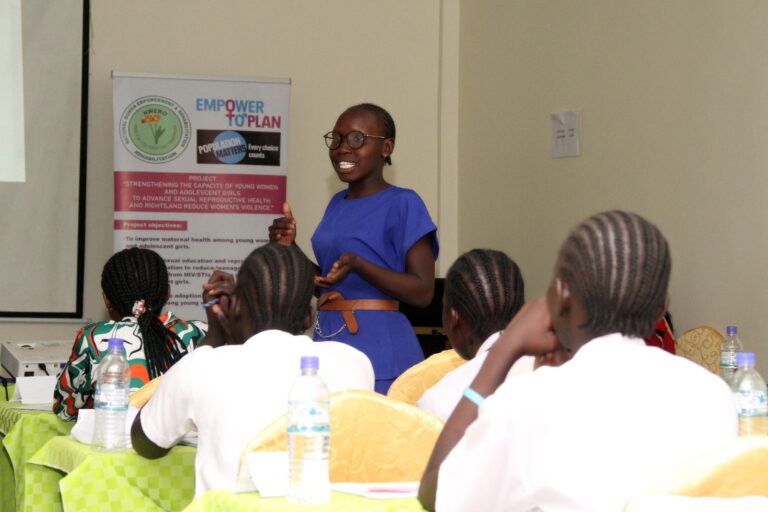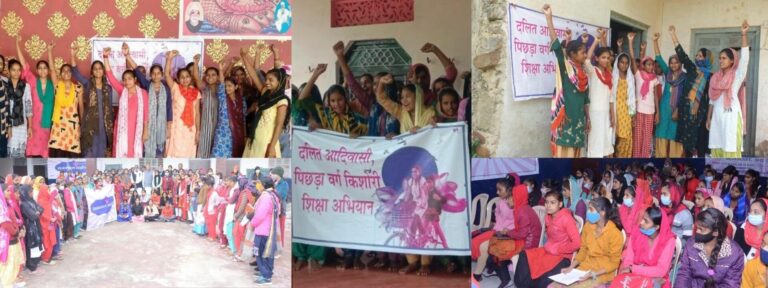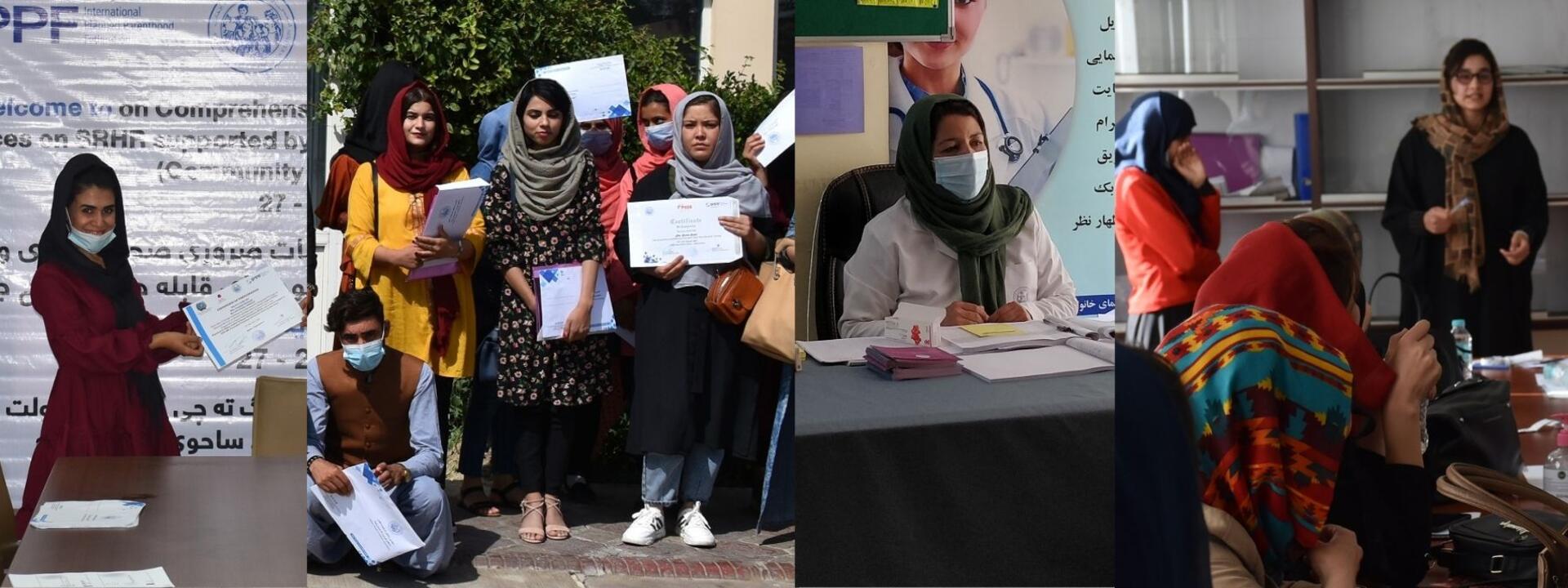
Afghan Family Guidance Association
On 23rd March 2022, the Taliban banned all girls in secondary school from accessing an education. In Afghanistan, women must now be accompanied by male chaperones and are prohibited from using public transport. Even while women’s and girls’ rights are increasingly attacked, international funding has slowed for the local organisations working to support Afghanistan’s most marginalised communities.
Our new Empower to Plan partner, the Afghan Family Guidance Association, plays an essential role in the provision of sexual and reproductive health services across the country.
During this unfolding humanitarian crisis, it is all the more vital that we safeguard access to basic human rights.
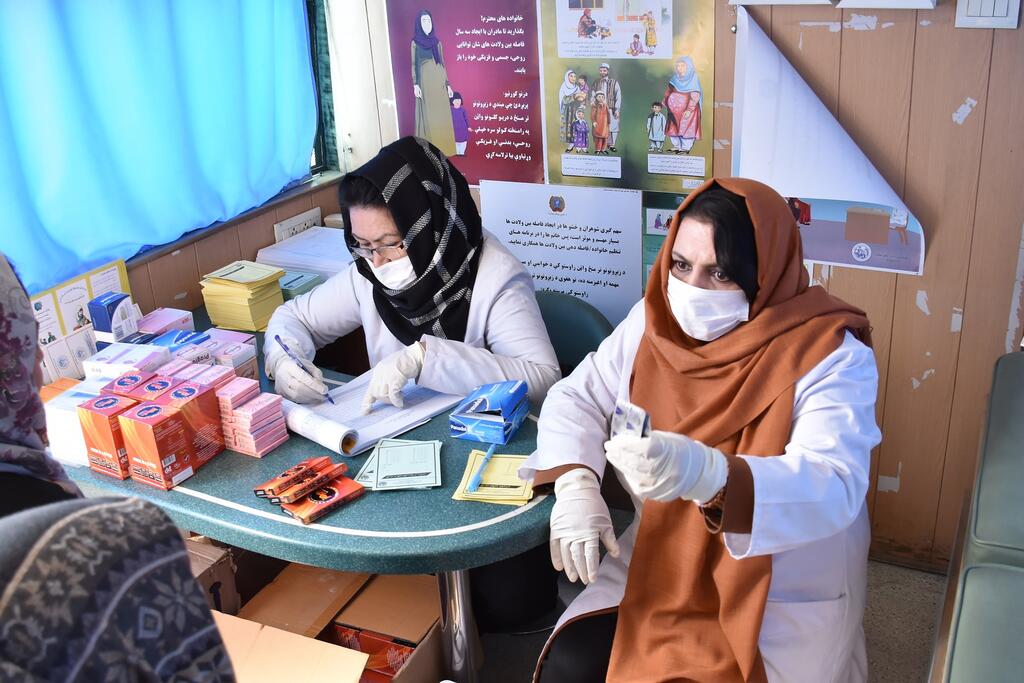
Since 1968, the Afghan Family Guidance Association (AFGA) has been working to ensure stigma- and discrimination-free reproductive health and rights for Afghans. The organisation empowers women and young people to learn more about and make informed decisions regarding their sexual and reproductive health – crucially important services, especially as yet more limitations are put on women’s and girls’ access to education, employment and decision-making.
Afghanistan is confronting an unprecedented humanitarian crisis with a very real risk of systemic collapse and human catastrophe that threatens many of the development gains of the last 20 years. The situation has deteriorated in recent months due to the conflict with the political power shift, COVID-19 and drought, which have created a perfect storm for one of the most profound humanitarian crises the world has ever witnessed – and it is Afghan women and girls who are paying the heaviest price.
UNFPA Afghanistan Humanitarian Appeal 2022
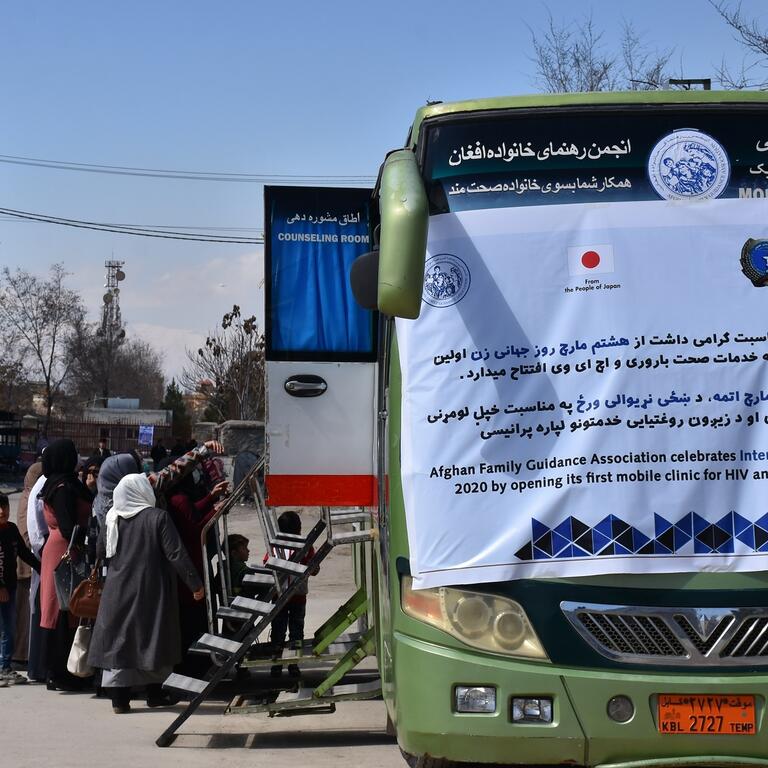
AFGA’s programmes are overseen by an elected gender-balanced board, and an extensive national team of health workers across both rural and urban areas. They run nine clinics providing integrated essential sexual and reproductive health services, including for post-abortion treatments and survivors of gender-based violence. The organisation also reaches those with least access to these medical services through two mobile clinics; fully-equipped vans, separated into four rooms with a gynaecologist, a doctor and a midwife.
AFGA’s 250 community outreach midwives also provide door-to-door services in rural and urban communities across 11 provinces of Afghanistan. When the Taliban took over in August last year, many of AFGA’s female healthcare workers were anxious about their jobs and their futures. In fact, in many provinces, healthcare workers and teachers are the only professions that the Taliban have allowed women to keep working in. Najibullah Samim, AFGA’s CEO, told Population Matters that, “They didn’t know if they would be allowed to stay in their jobs by the Taliban. However, health services have not been suspended by the de facto authorities, so we have continued working. With our networks and support, including Whatsapp groups and regular communication with our outreach workers, they have been encouraged to stay in their jobs and reach the women who need our services.”
From January to November 2021, AFGA offered 1,927,159 individual medical services through their static and mobile clinics and 226,517 services through their Community Outreach Midwife programme.
Empower to Plan funding will support the creation of three new midwife positions to be based in AFGA’s static clinics in three Kabul public hospitals. The new additions to AFGA’s team will provide family planning counselling sessions for people seeking contraceptive methods.
I do not see the capacity in me to raise more than 5 children. I barely can take care of my five children. Family planning is a must for me. I hope that I receive the methods from AFGA in the long term.
Nazifa*, patient of AFGA’s family planning healthcare services
However, the conditions for providing family planning services are increasingly difficult.
In January, the UN Secretary General, António Guterres, said, “we are in a race against time to help the Afghan people.” He continued, “International funding should be allowed to pay the salaries of public-sector workers, and to help Afghan institutions deliver healthcare, education and other vital services.”
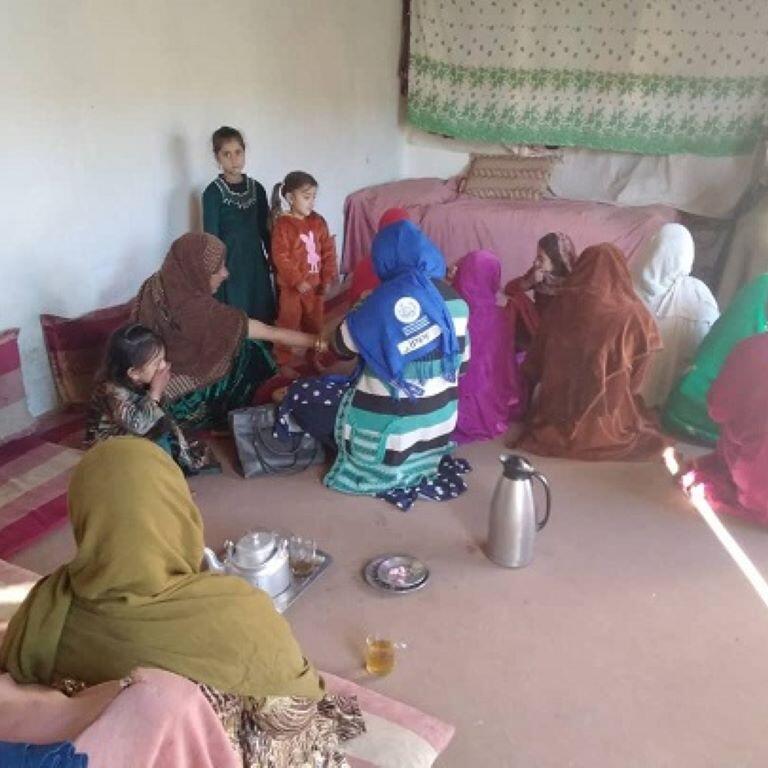
The UNFPA Afghanistan Humanitarian Appeal estimates the potential impact of inaction on maternal health and family planning as resulting in 4.8 million unwanted pregnancies and drastic increases in maternal mortality rates and unmet need for family planning across the population.
According to the International Planned Parenthood Foundation (IPPF), one of AFGA’s core funders, 1 in 8 Afghan women have a lifetime risk of maternal death, while 28% of children die before their 5th birthday.
The situation is dire and worsening. And that’s why we need your help.
Preventing unwanted pregnancies may not sound like a big deal for some, but certainly for people like me, family planning and spacing births give us life.
Latifa*, patient of AFGA’s family planning healthcare services
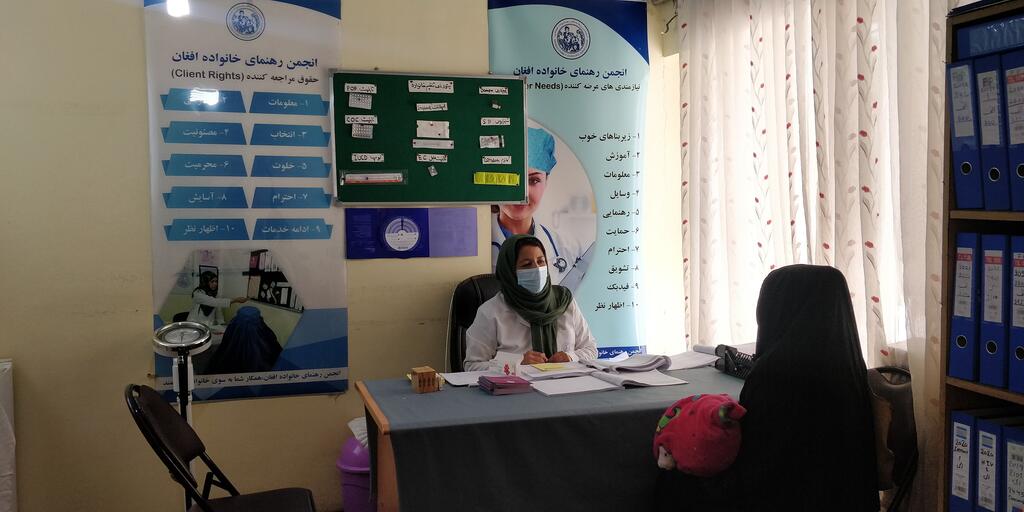
Your support of our Empower to Plan campaign for AFGA will finance the salaries of three midwives and experts in family planning, who will provide 1-to-1 counselling in AFGA’s static clinics at three public hospitals in Kabul. This will enable Afghan women, men and families to access essential medical services and make informed decisions about their reproductive health.
While many international donors are struggling to get funds into the country and local organisations cannot provide salaries to key workers, Population Matters’ partnership with AFGA allows us and our community of members and supporters to directly contribute to the lifesaving work of one of Afghanistan’s oldest NGOs.
Please join us in this urgent appeal to meet the sexual and reproductive rights of Afghan women and girls during this hugely challenging time.
* pseudonyms have been used to protect patient confidentiality
–

